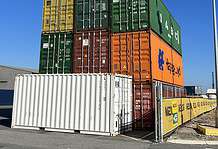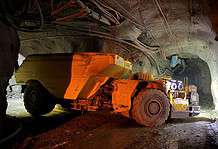Major mining companies ramp up decarbonisation efforts

As the world moves towards a more sustainable future, the mining industry is under pressure to reduce its carbon footprint and embrace more environmentally friendly practices.
This has led to a movement within the industry to explore decarbonisation strategies and technologies, with companies making significant investments to reduce their emissions and improve their sustainability credentials.
Mining giants Rio Tinto (ASX: RIO) and BHP (ASX: BHP) are making significant strides in reducing their carbon footprint and improving their sustainability credentials, indicating a growing momentum within the industry towards more environmentally friendly practices.
Rio Tinto’s renewable energy storage efforts
Rio Tinto has been making significant efforts to reduce its carbon footprint and increase the use of renewable energy in its operations.
One area where the company is making notable progress is in the storage of renewable energy.
Rio Tinto has developed several innovative projects to store energy, such as a wind and solar-powered plant that stores energy in giant batteries.
However, storing renewable energy has its challenges, including the intermittency of renewable sources and the limited storage capacity of current technologies. Rio Tinto is working to overcome these challenges by exploring new storage technologies and partnering with companies to develop new solutions.
These efforts are part of Rio Tinto’s broader decarbonisation strategy, which aims to reduce the company’s greenhouse gas emissions by 30% by 2030 and achieve net-zero emissions by 2050.
The company is also investing in renewable energy generation and electrifying its mining fleet to reduce its reliance on fossil fuels.
BHP’s focus on copper
BHP (ASX: BHP), another global mining company, has been increasing its focus on copper and nickel in line with its strategy to meet the increasing demand for critical minerals needed for electric vehicles, wind turbines, and solar panels.
Copper is a crucial component in many green technologies and is expected to see significant demand growth in the coming years.
BHP is positioning itself to take advantage of this trend by investing in new copper mines and expanding existing ones.
The company is also exploring new copper deposit discoveries and investing in new technologies to extract copper more efficiently and sustainably.
This focus on copper fits into BHP’s broader decarbonisation efforts, which include reducing the company’s greenhouse gas emissions and investing in renewable energy.
BHP has set a target to reduce its emissions by 30% by 2030 and achieve net-zero emissions by 2050.
The company is also investing in renewable energy generation and electrifying its mining fleet to reduce its reliance on fossil fuels.
By focusing on copper and other critical minerals, BHP is not only positioning itself for future growth but also contributing to the decarbonisation of the mining industry by enabling the transition to cleaner technologies.
Conclusion
Decarbonisation in mining is becoming increasingly important as the world moves towards a more sustainable future.
The mining industry has responded by exploring decarbonisation strategies and technologies, with companies making significant investments to reduce their emissions and improve their sustainability credentials.
Rio Tinto is focusing on renewable energy storage efforts, and BHP is positioning itself to take advantage of the increasing demand for critical minerals needed for renewable energy technologies.
These efforts are crucial in reducing the mining industry’s carbon footprint and contributing to a more sustainable future.
However, there are still significant challenges to overcome, including the carbon intensity of public grids, the costs associated with implementing low-carbon solutions, and the need for further innovation in renewable energy storage.
As such, continued collaboration between companies, industry alliances, and consortiums will be essential in accelerating progress towards zero-carbon mining.
Overall, the mining industry has recognised the importance of decarbonisation and is taking steps towards a more sustainable future.
It is clear that mining companies are committed to reducing their carbon footprint and contributing to a more sustainable future for all.






















































